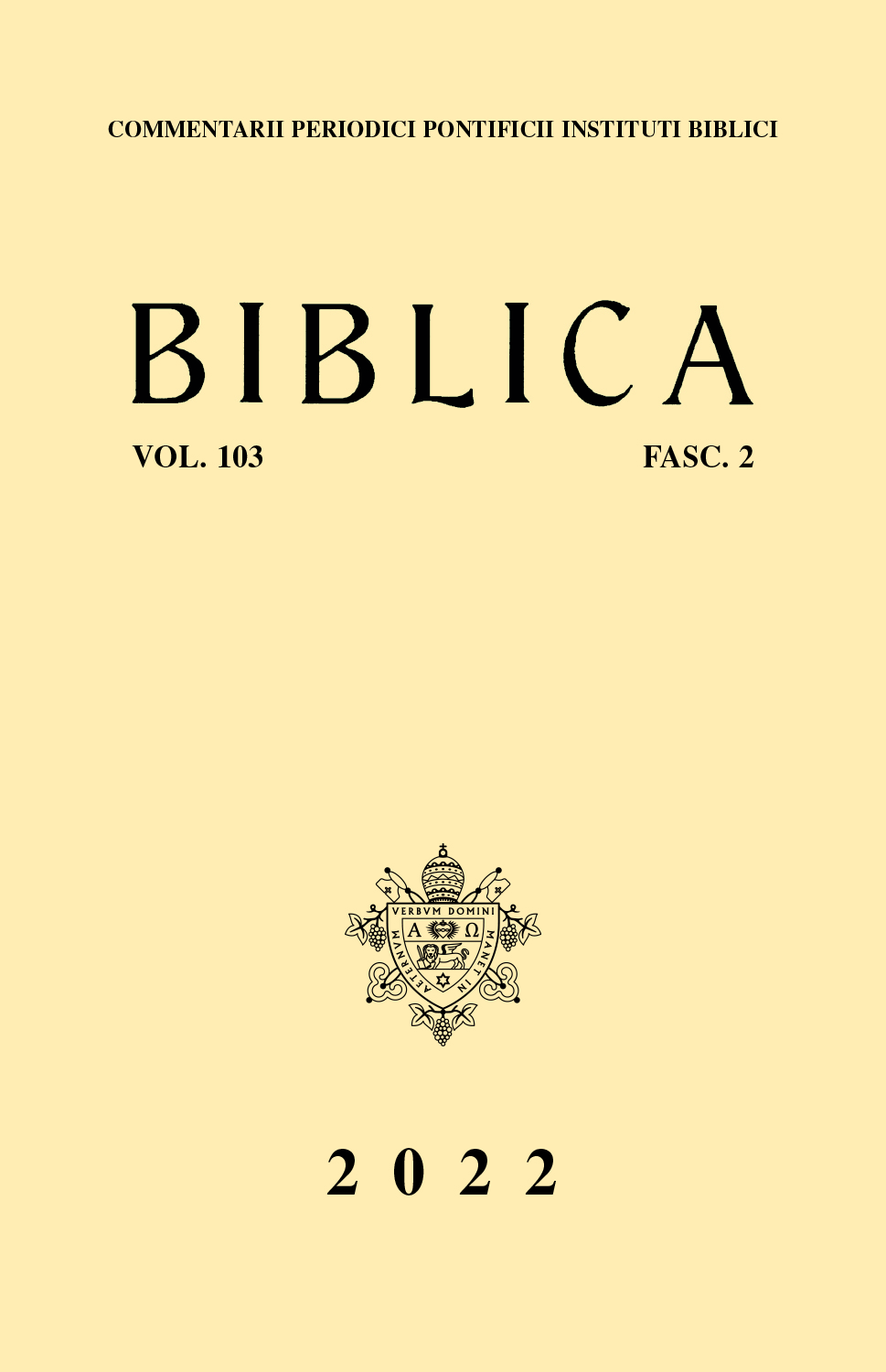 previous article in this issue previous article in this issue | next article in this issue  |

Preview first page |
Document Details : Title: Trauma, Poetry, and the Body Subtitle: On the Psalter's Own Words for Wounds Author(s): VERDE, Danilo Journal: Biblica Volume: 101 Issue: 2 Date: 2020 Pages: 208-230 DOI: 10.2143/BIB.101.2.3288262 Abstract : The post-structural understanding of trauma has informed much of literary trauma studies, including biblical trauma studies. In line with recent scholarly discussion on the necessity of going beyond this model, the present paper intends to recover the Psalter’s own language and aesthetics of trauma. It is argued that while several psalms recall our modern concept of ‘trauma poetry’, the Psalter has its own poetic resources and linguistic repertoire to represent traumatic experiences, among which the use of terms for body parts and bodily images stands out. The Psalter’s aesthetics of trauma is first and foremost a bodily aesthetics: the body emerges as the main protagonist of trauma, not only because trauma is primarily described as happening in the flesh, but also because human bodily experience provides words and thoughts through which trauma is made thinkable, speakable, and hopefully surmountable. |
|


